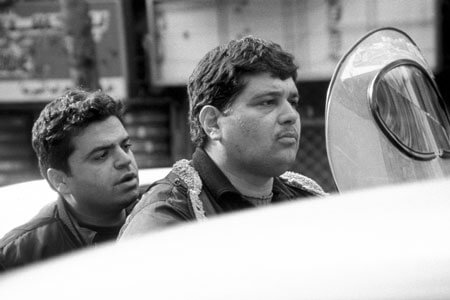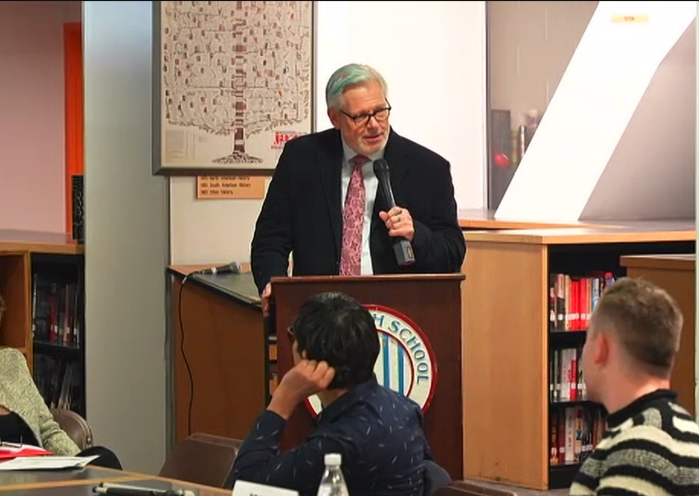Smuggled out of Iran, this compelling film is a new year’s gem
Directed by Jafir Panahi and written by acclaimed Iranian filmmaker Abbas Kiarostami, “Crimson Gold,” a riveting character study of a broken man, is utterly relentless and absolutely remarkable.
Based on a true story, the film opens with a gripping sequence. A jewelry heist is in progress and Hussein (Hussein Emadeddin) is threatening the people inside the store with his gun. Meanwhile, various onlookers move in and out of the doorway that frames the action. The camera moves in slowly—imperceptibly at first—ending with a close up of Hussein who points the gun to his head and takes his own life.
The movie then reveals Hussein’s daily life up to this horrific moment, explaining the motives behind both the robbery and suicide. The uneasy answers are crystallized in a series of vignettes that show how Hussein, a lower class man, was treated by society, and what caused him so much despair.
With each episode leading up to Hussein’s death, the film becomes unbelievably powerful. The filmmakers repeatedly show, without tedium, how this man—an overweight pizza delivery guy—suffers at the hands of a society that pays him no respect.
That point is made both subtly and with elegance, as when Hussein is unable to deliver pizzas while the police are seizing partygoers in the building he is calling on. Detained without an explanation, Hussein cannot do his job because the police have their job to do. This sequence, like much of the film, is an allegory for the contemporary state of Iran, whose strict class and political systems are drawn expertly without “Crimson Gold” coming across as didactic.
Some of the film’s most lyrical scenes are of Hussein or Hussein and his friend Ali (Kamyar Sheissi) riding through the bustling streets of Tehran on a motorcycle. These images are repeated several times in long, lingering shots that highlight the characters’ isolation in Tehran, and ratchet up the dramatic tension.
The film’s sobering message is complemented by fascinating insights into the lives and culture of its characters. Hussein has a an engaging rapport with Ali, his future brother-in-law, and he appears to be a relatively gregarious guy, which only underscores the tragedy of his suicide.
When he and Ali pay their first visit to the jewelry store and are denied entry—they are forced to conduct their business through the door—Hussein reacts less than his friend about the way they are treated. His contempt stays under wraps, which makes his ultimate outburst of violence all the more gut-wrenching.
Hussein’s increasing self-awareness provides the film’s compelling subtext. Emadeddin’s performance as a heartbreaking, sympathetic character is extraordinary. Emadeddin is incredibly expressive with his face and his large frame as his character walks through a rich man’s house and admires a world that will never be his.
“Crimson Gold” is also noteworthy for its realistic dialogue, including its silences, which allows viewers the sense they are eavesdropping on the characters’ lives. A friendly conversation about a deliveryman’s sneakers and a lonely customer’s rants about his departed girlfriend are among the small moments that offer remarkably moving insight into Hussein’s tragedy.
A simple drama with complex themes, “Crimson Gold” is one of the best films to come out of Iran in many years. The fact that this provocative and controversial drama was actually smuggled out of its home country for screenings in North America makes it all the more important to see.

































